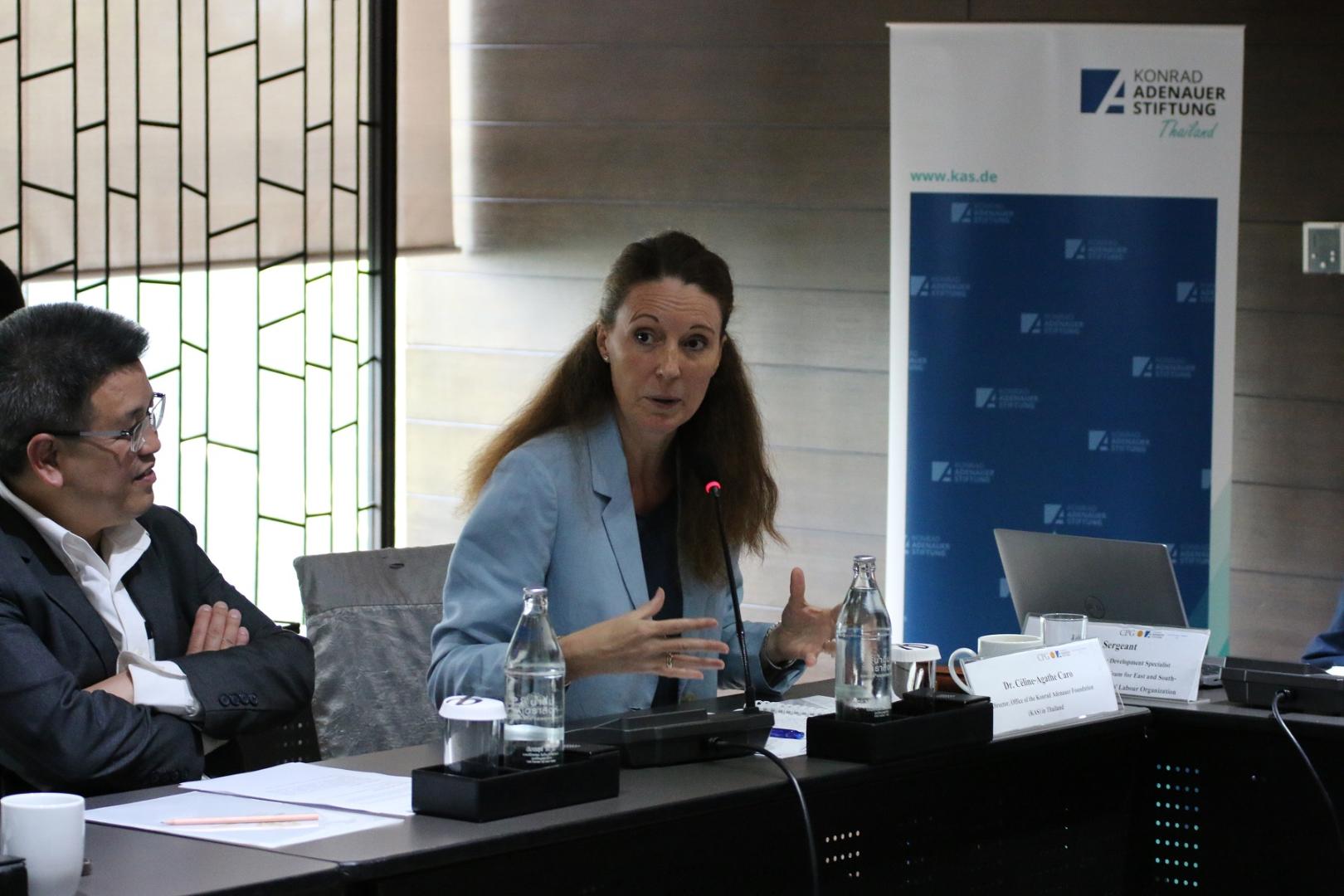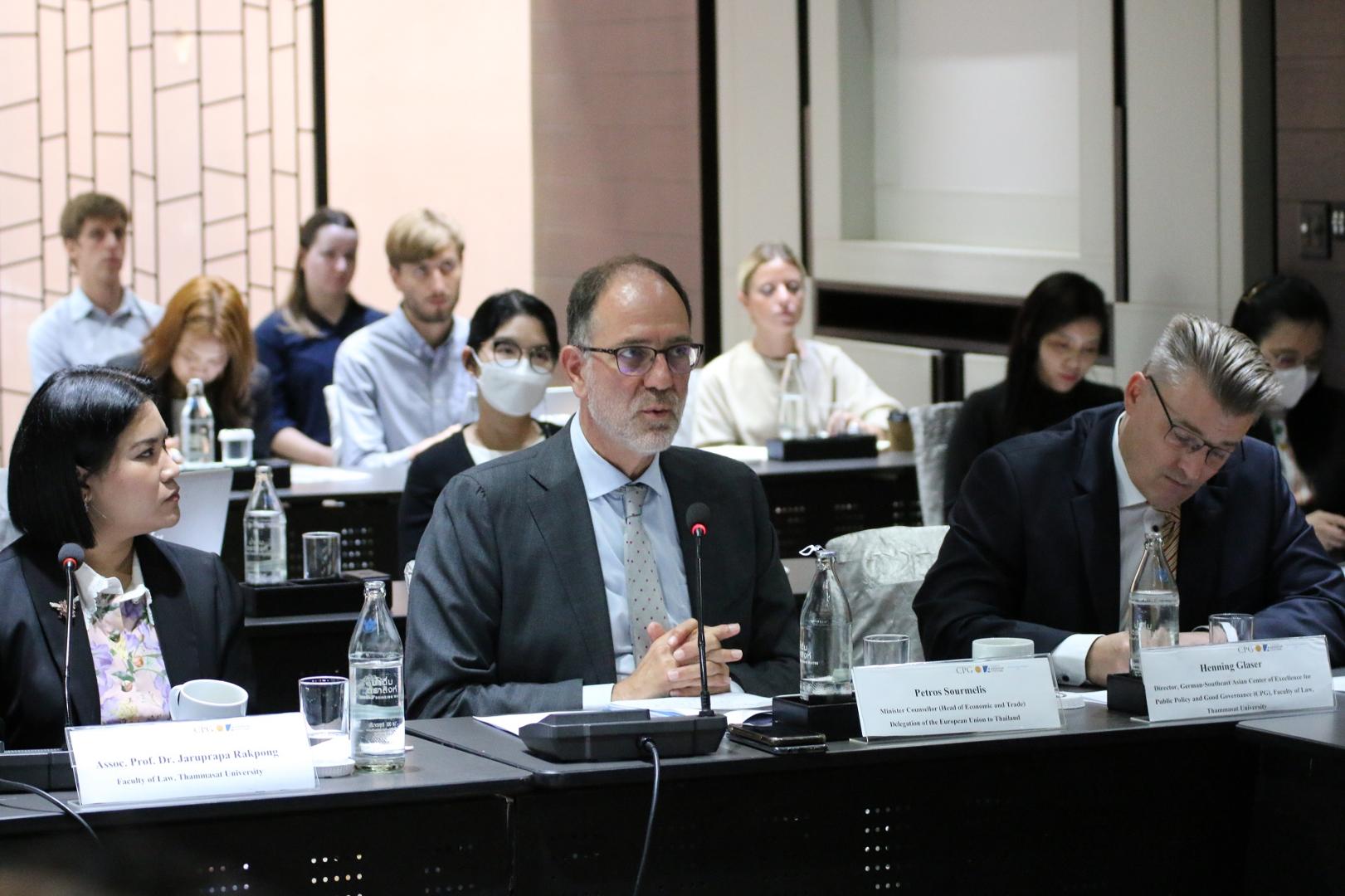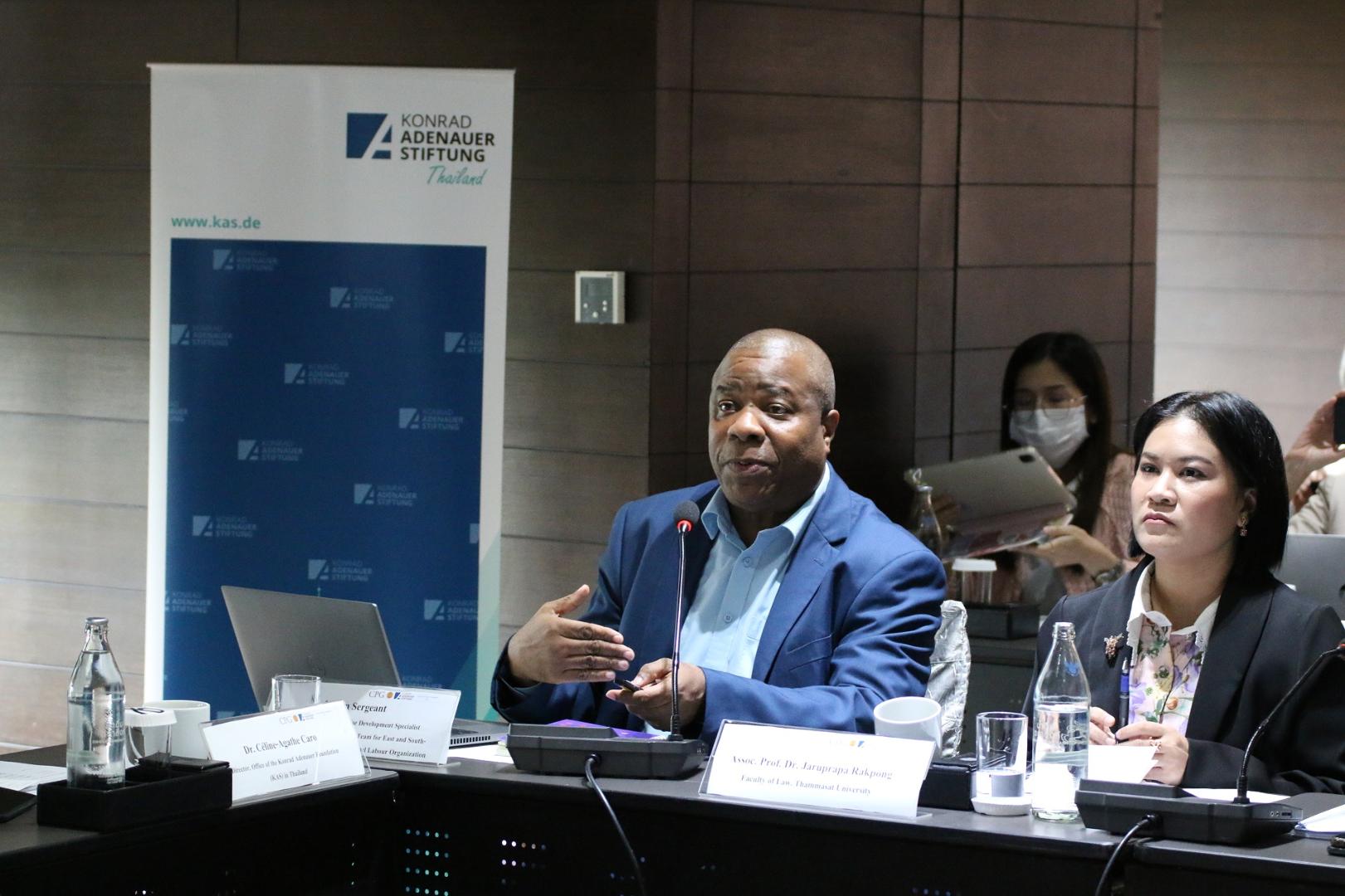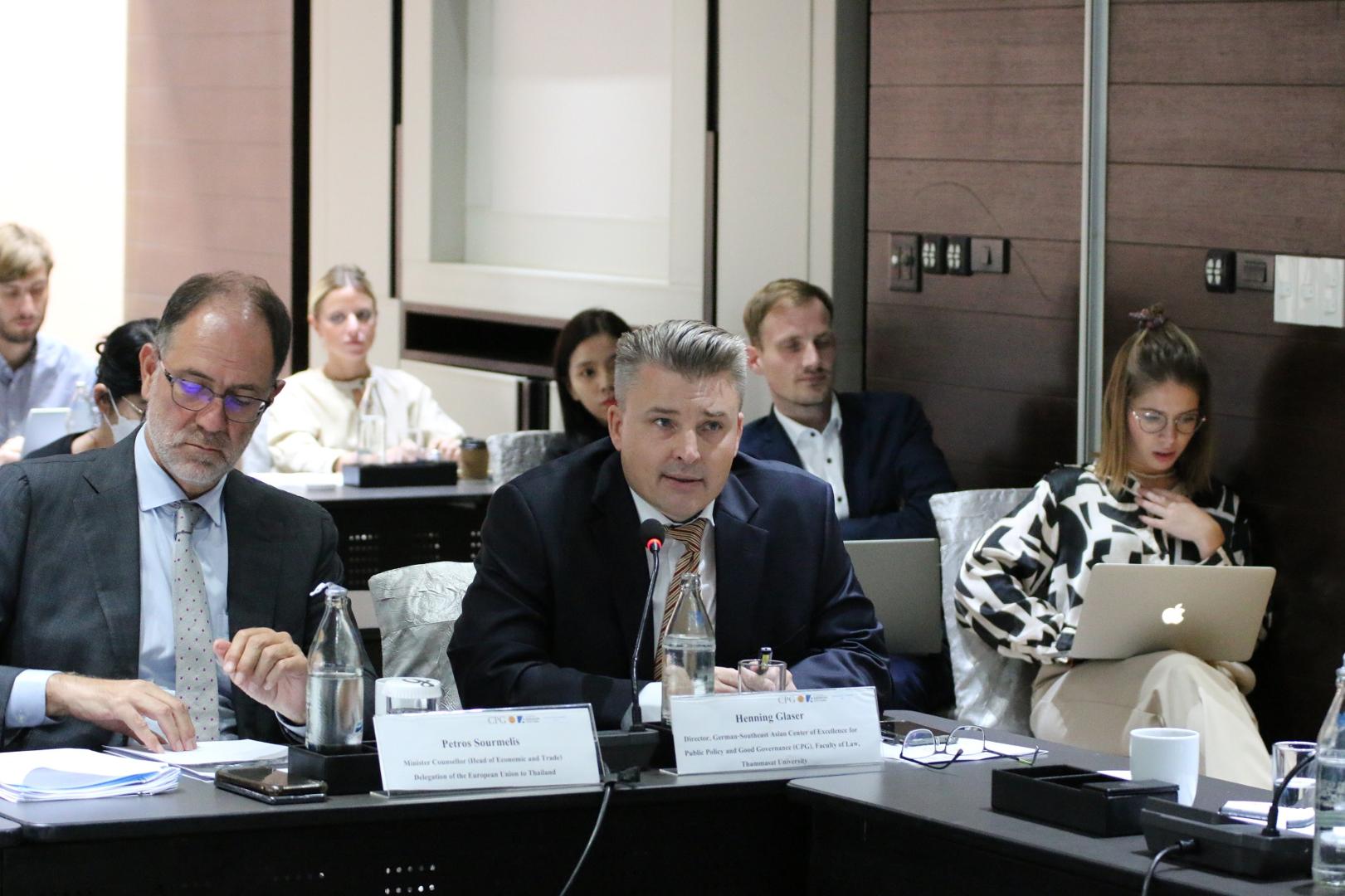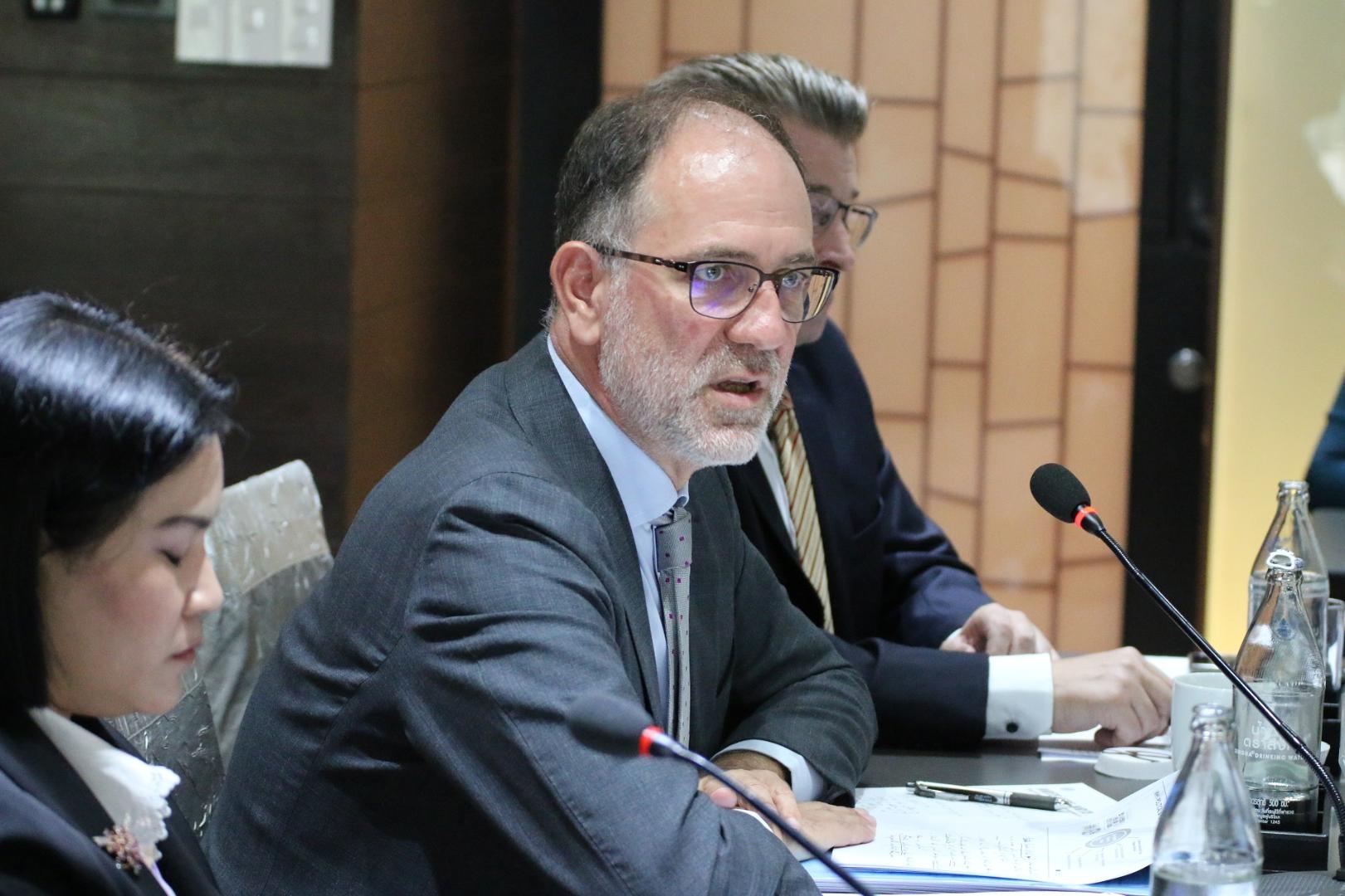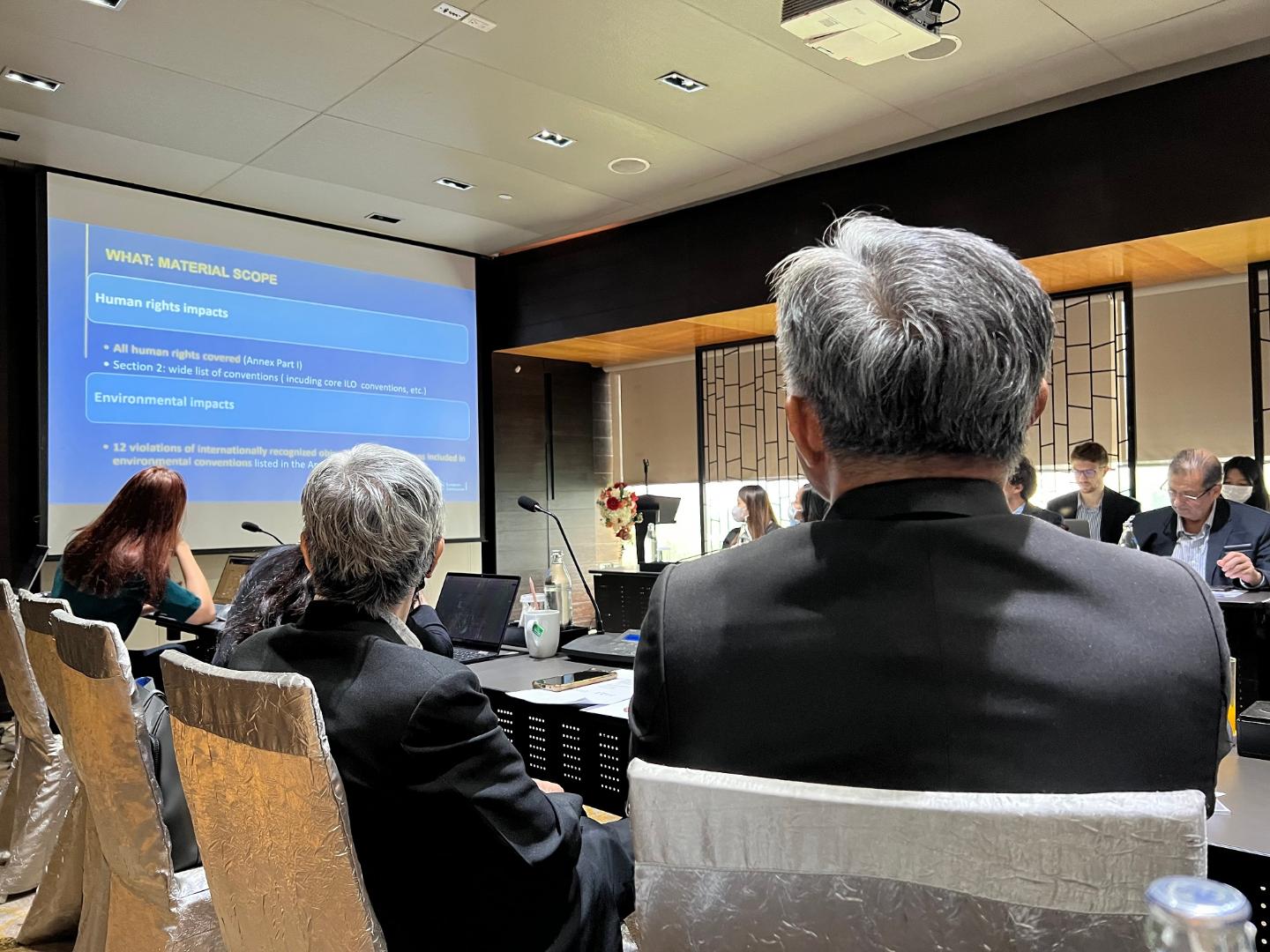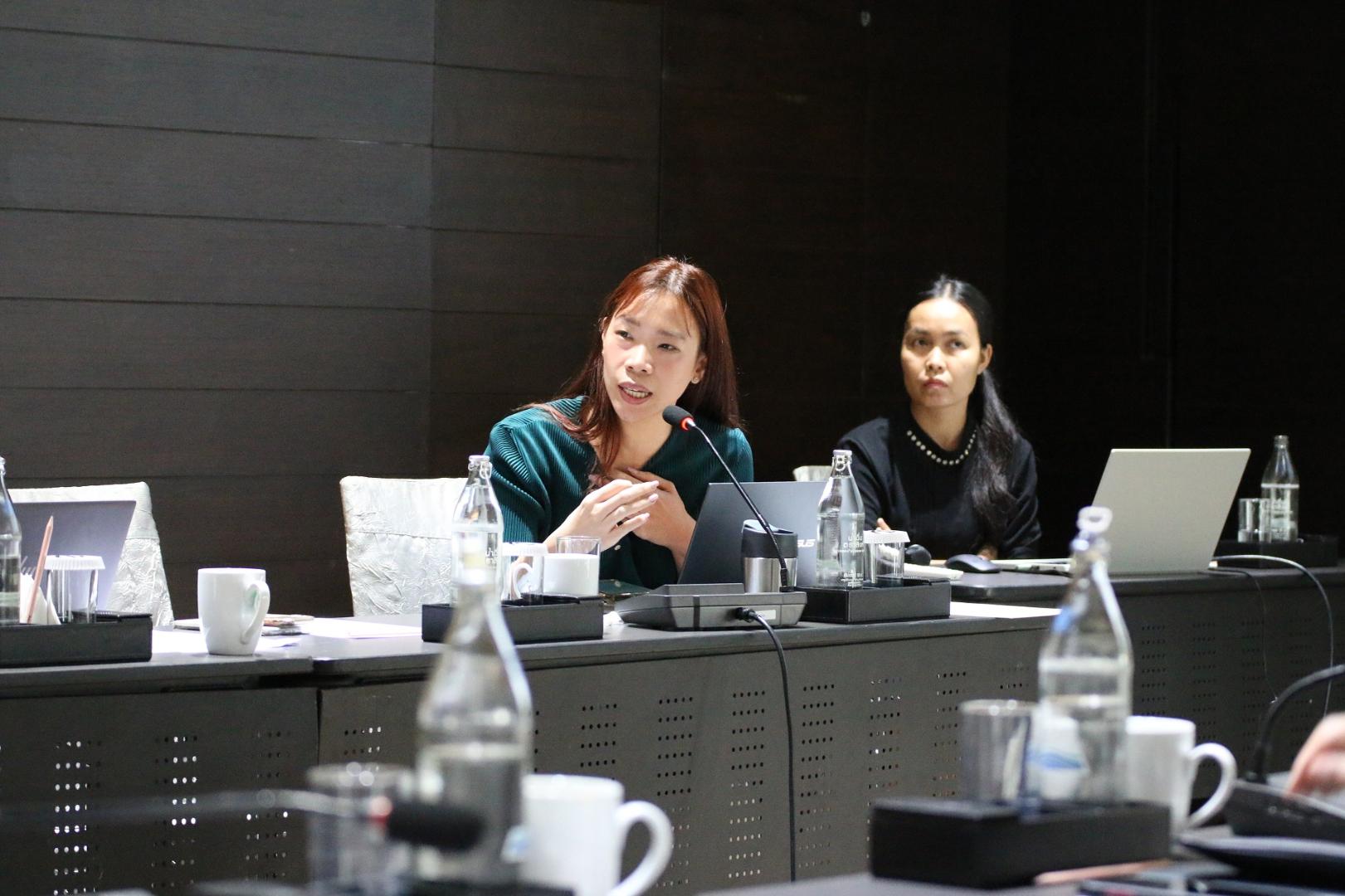The seminar, which took place under Chatham House rules, featured three speakers: Mr. Petros Sourmelis of the EU Delegation to Thailand, Mr. Kelvin Sergeant of the International Labour Organization, and Mr. Henning Glaser of the German-Southeast Asian Center of Excellence for Public Policy and Good Governance, moderated by Assoc. Prof. Dr. Jaruprapa Rakpong from the Faculty of Law at Thammasat University. Participants in the audience hailed from various backgrounds such as international organizations, civil society, government agencies, media outlets, foreign embassies, academia, and the business community.
The speakers strongly emphasized that the CSDDD is not a solitary effort by the EU to push its current political agenda. Rather it is part of an overarching global trend to mainstream ESG-related regulations and best practices into international business practices. In fact, the EU is merely one actor within a very large framework, comprising donors such as banks, states, and foundations, as well as industry initiatives, standard development institutions, certifying bodies, investment management firms, rating agencies, universities, NGOs and more. All these actors are gradually pushing for more sustainable business practices in line with the ESG-agenda. Therefore, the seminar highlighted the need for companies around the globe to adapt to this trend as soon as possible. Otherwise, it will dramatically limit their competitiveness in the future, as ESG standards will ultimately become the basic footing of any potential economic cooperation.
Beyond that, the seminar discussed the EU’s trade relations with Thailand, as the EU is Thailand’s 4th largest trade partner. It became clear, that the CSDDD will greatly impact Thailand and all of Asia, since it promotes sustainable and responsible business conduct along global value chains. More concretely, it will set forth clear rules on due diligence and compliance, that cover both human rights and environmental issues. Furthermore, the seminar addressed the penalties for non-compliant EU-firms and dedicated a substantial amount of time to discuss both challenges and opportunities for SMEs in Thailand and the EU, resulting from the CSDDD. The speakers went on to explain the extent of the directive’s impact on Thai companies in more detail, which was met with particular interest from the audience. It was further pointed out, that many ESG-related practices were already enshrined in numerous international treaties and voluntary agreements, many of which (though not all of them) Thailand has already acceded to. Additionally, the speakers shared information about existing tools provided by the EU and ILO, meant to help companies with respect to the implementation of relevant regulations. In this context, the importance of national action plans was strongly emphasized as well.
Pointing to the European Green Deal, one of the speakers highlighted the significance of sustainability as a key driver in EU-policymaking and provided numerous examples of previously issued regulations. Emphasizing again that the CSDDD is based on already existing international voluntary frameworks, the speaker added that the directive is now looking to formalize those by providing sanctions mechanisms to actively enforce the said framework. The presentations further outlined the main high impact sectors as well as the different categories of affected companies in the EU. The seminar then proceeded to expound the scope of the legislation as well as the resulting obligations for affected companies and their directors. Additionally, before going into more detail regarding the benefits for citizens, companies, and partner countries, it was outlined how the directive shall be implemented and enforced. Finally, it was clarified that the directive has not yet left the proposal stage. Therefore, the next steps in the conception of the draft directive will constitute its official adoption and the subsequent transposition into national law by all 27 EU member states. This will likely take 2-3 years, thus giving Thai companies an approximate timeline to adjust their business practices.
The following Q&A session centered mainly around the challenges and obligations for Thai companies as well as the expectations for the EU and the Thai government in supporting businesses’ implementation and compliance efforts. Upscaling its efforts to raise awareness among the Thai business community was widely seen as a major duty of the EU. Meanwhile, the panelists stressed the need for Thai companies to gather reliable and analyzable data, since the CSDDD will put strong emphasis on proper reporting processes. In this context, one speaker pointed to the ever-increasing use of AI-technology, which will necessarily lead to a transformation of Thai auditing and reporting procedures. In addition, the discussion touched upon the need for traceability, the consequences of non-compliance, the details of the auditing process, and the legal obligation for European companies to provide extensive training to their partners along the global supply chain. One participant also criticized the unilateral imposition of the regulation by the EU, stressing that a more collaborative approach would be better received. While the speakers acknowledged the criticism, they underlined once again that the directive is only the continuation of an overarching global trend, that many key stakeholders have already pledged to advance even further. Overall, it was concluded, that despite some initial difficulties, Thailand and its companies will benefit greatly from adapting to the regulations and that the country is generally well positioned to effectively implement the CSDDD.
Given the diverse range of participants in the audience, the seminar certainly served to increase the topic’s visibility among Thai and international stakeholders. The active participation during the final discussion highlighted that the issue of ESG-regulation is undoubtedly of great interest to both Thai and European actors alike. Afterwards, participants expressed interest in organizing further events on the topic.
Report provided by Tom Wilms, Intern at KAS Thailand



